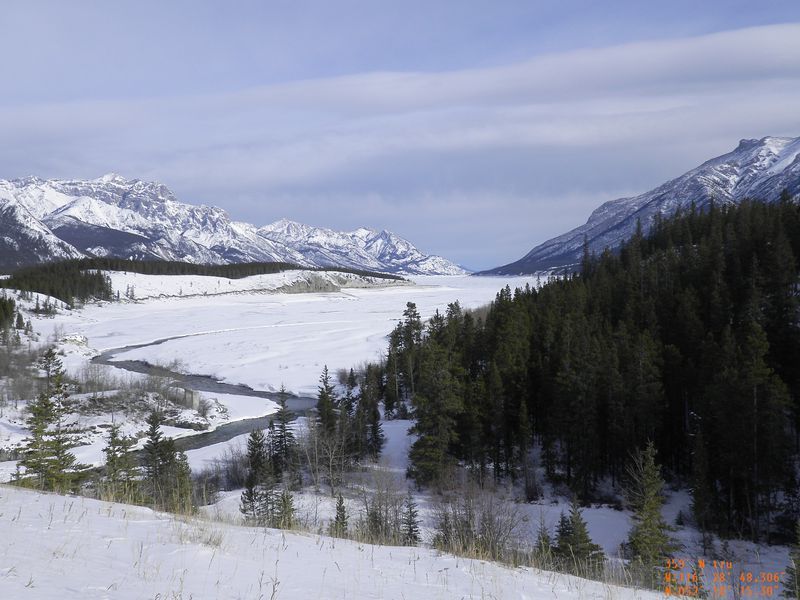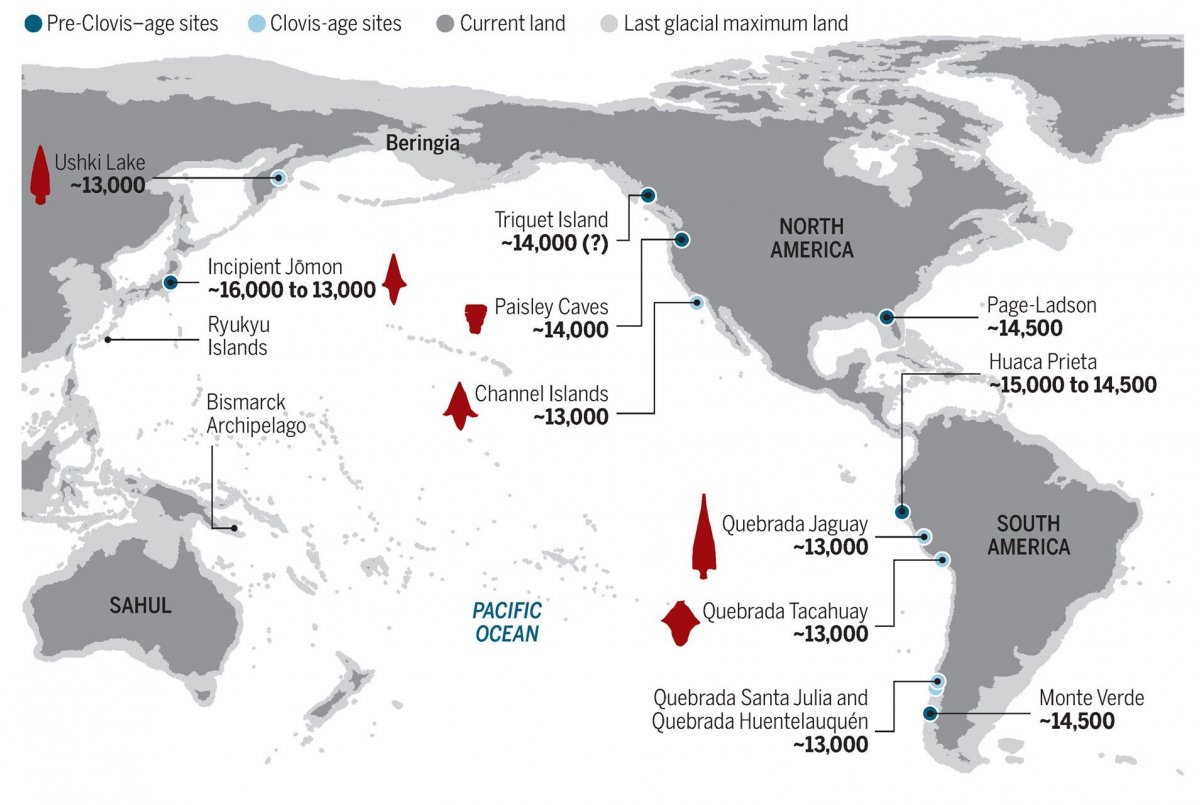
Until the 21st century, it was widely believed that the first humans arrived in North America via a land bridge from what is now Russia and Alaska. Anthropologists have since been dismantling that theory's timeline. And now, they believe America's earliest humans didn't even arrive by land.
In a new review of evidence, half a dozen prominent anthropologists have thrown their weight behind "the kelp highway hypothesis," which maintains that America's first humans came by boat, surviving off the rich biodiversity of the kelp forests along the glacial coasts.
"In a dramatic intellectual turnabout, most archaeologists and other scholars now believe that the earliest Americans followed Pacific Rim shorelines from northeast Asia to Beringia and the Americas," wrote the new perspective's authors in the journal Science. "But finding proof for this dispersal route has remained elusive."
According to the older, "Clovis-first" theory, America's earliest humans were the Clovis people, hunter-gatherers who got here around 13,500 years ago. The Clovis people did get here around that time, and they did travel through the ice-free corridor. But most scholars no longer believe they were the first—there were pre-Clovis people who got here more like 17,000 to 20,000 years ago. Now researchers point to evidence revealing how that earlier group could have made the journey.
"We hope that the paper does a couple of things," first author Todd Braje, an associate professor of anthropology at San Diego State University, told Newsweek by email. "1) Highlight the Pacific Rim coastal route, which was marginalized for decades but is now mainstream among archaeologists; and 2) stress the need for exploration of the continental shelves, where vast submerged landscapes utilized by the First Americans exist."

The authors point to recent archaeological evidence, like skeletal remains from California's Santa Rosa Island, that, taken together, make a strong case for the idea that pre-Clovis people settled in various sites along coastal North America.
"The uncertainty left by the collapse of the Clovis-first paradigm," the authors write, "has opened a Pandora's box of alternative scenarios for the peopling of the Americas, with some scholars and members of the general public quick to accept implausible claims based on limited and equivocal evidence."
As the glaciers began to retreat around 17,000 years ago, the warming water in the kelp forests—which spanned the coasts of Japan to Baja California—would have provided America's earliest settlers with everything they needed to survive as they traveled down the Pacific Rim shoreline.
Recent anthropological fieldwork along the coastline found evidence that they'd been settled during that time frame. It's very possible this is the definitive final word in the debate around the Clovis-first theory.
Uncommon Knowledge
Newsweek is committed to challenging conventional wisdom and finding connections in the search for common ground.
Newsweek is committed to challenging conventional wisdom and finding connections in the search for common ground.
About the writer
Kastalia Medrano is a Manhattan-based journalist whose writing has appeared at outlets like Pacific Standard, VICE, National Geographic, the Paris Review Daily, ... Read more
To read how Newsweek uses AI as a newsroom tool, Click here.








